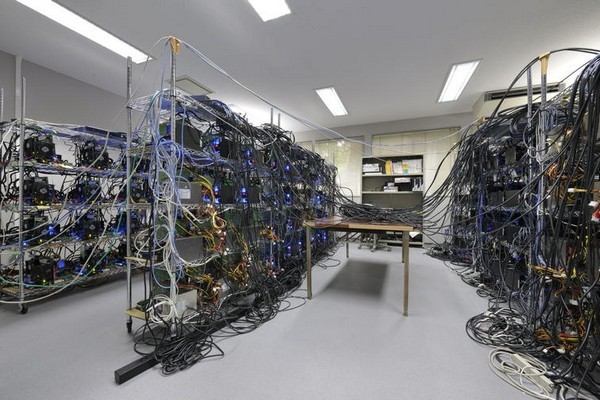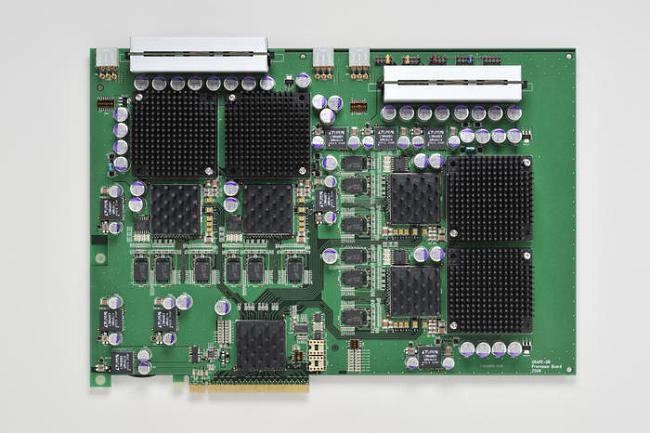The Japanese built a "green" supercomputer

That is, not green in color, of course, but a device that does much less harm to the environment than similar supercomputers in power. The Japanese reported that their supercomputer would be ready soon, back in June. Shortly thereafter, Grape-DR took first place in the Little Green500 List, which is published monthly. By the way, the energy efficiency of the Japanese supercomputer is 815.4 megaflops / W, which is 5% higher than the achievement of the previous leader, a system from IBM with energy efficiency of 773.38 megaflops / W. Thus, Grape-DR rightfully occupies the first line in the "green" list of supersystems.
The Japanese managed to develop a chip accelerator, which can significantly reduce energy consumption. Without a chip, a computer would consume power of 150 megaflops / W, so the chip can improve system performance by more than five times.

By the way, Grape-DR has 64 pairs of Intel Core i7-920 processors, plus four accelerator chips. To evaluate the performance, the researchers worked with the Lynpack test, which is used to test supercomputers from the "Top500" rating. The Japanese super-computer, according to the developers, will be used exclusively for the needs of astronomy, scientific and engineering calculations.
Of course, the fact that super-computers "turn green" cannot but rejoice, but it is clear that they are not the leaders in environmental pollution among computing devices. Ordinary PCs and laptops do much more harm to the environment. In addition to electricity consumption, there are other indicators of “environmental friendliness” of the computer, but nevertheless, the main emphasis is now on energy consumption. Probably, the creation of such a computer did more harm than the harm that this super-computer will do during its entire operation. I once heard that the smaller the computer (laptop, netbook, laptop PC), the more harm the environment makes to its production. I do not know, however, how much this information is true.
Nevertheless, in the modern computer industry, positive shifts are already being outlined in the green area, large and small corporations have long been working on improving the production lines, trying to save electricity and use non-hazardous materials for production (everything is relatively clear a business). Even Chinese companies that have never suffered from "environmental friendliness" begin to position some "green" products, for example, motherboards with low energy consumption, for the production of which recyclables are used.
Here is the English-language source , who are interested
